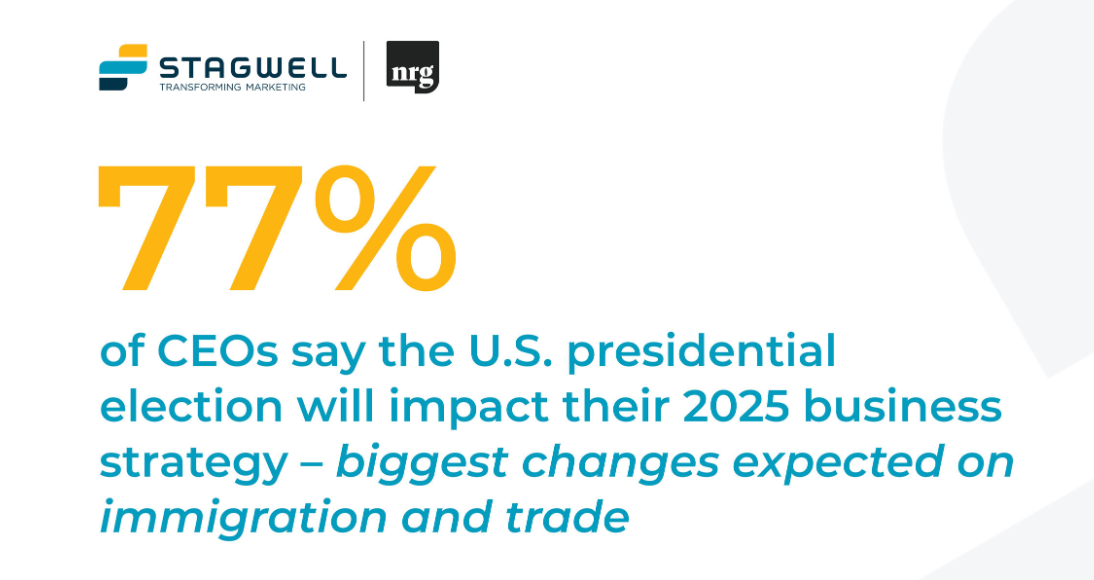Risk & Reputation
RiskRep Radar: Why do Americans get their news from social media if they don’t trust it?
By
Stagwell’s Risk and Reputation Unit
Welcome to the RiskRep Radar, an every-other-week newsletter from Stagwell’s Risk and Reputation Unit leaders on what brands need to know about the intersection of business and politics. Every edition features key data and news roundups with early access to Risk and Rep Unit-led polling.

Americans Trust Local Institutions More than National Ones
American institutions, especially at the national level, are facing a huge deficit of trust. Harris Poll data show people get increasingly suspicious of those outside their own community:
- My friends/family: 84% trust information from this source
- Local TV news: 65%
- Local newspapers and news websites: 62%
- National newspapers and news websites: 55%
- National TV news: 55%
- Local political leaders: 50%
- National political leaders: 41%
- Social media: 35%
Americans of All Ages Use Social Media for News But Don’t Trust It
While 65% of Americans do not think social media is a trusted source of news, 66% have used social media to seek out news, according to the Harris Poll.
And it’s not just young people: 82% of Gen Z, 78% of Millennials, 72% of Gen X and 44% of Boomers and older have used social media for news.
Nor is it partisan: 67% of Democrats, 66% of Republicans and 66% of Independents have used social media for news.
Yet everyone isn’t seeing the same social media. What makes the situation even more challenging is that people live in their own news bubbles – and their own brand bubbles, too.
In the News: Social Media Platforms’ Trust and Safety Struggles
Social media CEOs from Meta, TikTok, X, Snap and Discord were in the hot seat last week for a contentious Senate Judiciary hearing about online child safety. The CEOs tried to highlight the resources their companies are directing towards monitoring and prevention, but public trust remains low.
While backlash against tech companies for their struggles on child safety comes from both sides of the aisle, the criticism around tech companies’ content moderation policies is increasingly partisan. Meta is now the poster child for what we call the “Crisis L,” a new risk pattern in which a politically driven crisis causes major reputation damage to a company with no evidence of recovery.
In 2019, after the Cambridge Analytica scandal, Meta’s reputation score dropped from the mid-70s to 58.3, into the Poor tier, and it still sits at 59.7 as of 2023. Meta is now the seventh most polarized company on the Axios Harris 100 with a 12.7-point gap between Democrat and Republican scores.
Brands cannot expect reputation recovery when half the country feels alienated from them politically.
Mark Your Calendar: February Risk & Rep Webinar
In addition to our biweekly newsletters, stay tuned for our monthly webinar series: 30-minute deep dives for communication leaders into key topics from employee activists to misinformation to geopolitics.
To RSVP to our first webinar on Thursday, February 22, 12:00-12:30 pm EST, email Alexis Williams.
ICYMI: Risk and Reputation Unit in the News
Related
Articles
In the News, Press Releases, Thought Leadership
Oct 30, 2024
77% of CEOs Say the Election Will Impact their 2025 Business Strategy; 85% are Bullish on Investment in the Gulf Region, Reveals Stagwell (STGW) Survey

Marketing Frontiers, Thought Leadership
Jul 26, 2024
Game On for In-Game Advertising? Four Things Marketers Should Know About Gaming
It's clear from dozens of Stagwell’s interviews with senior marketers…
Thought Leadership
Jun 28, 2024
Hitting the Mark: Future of News Takeaways from Cannes Lions
Stagwell brought the Future of News to Cannes Lions, where…




